
The Business of Fashion
Agenda-setting intelligence, analysis and advice for the global fashion community.

Agenda-setting intelligence, analysis and advice for the global fashion community.
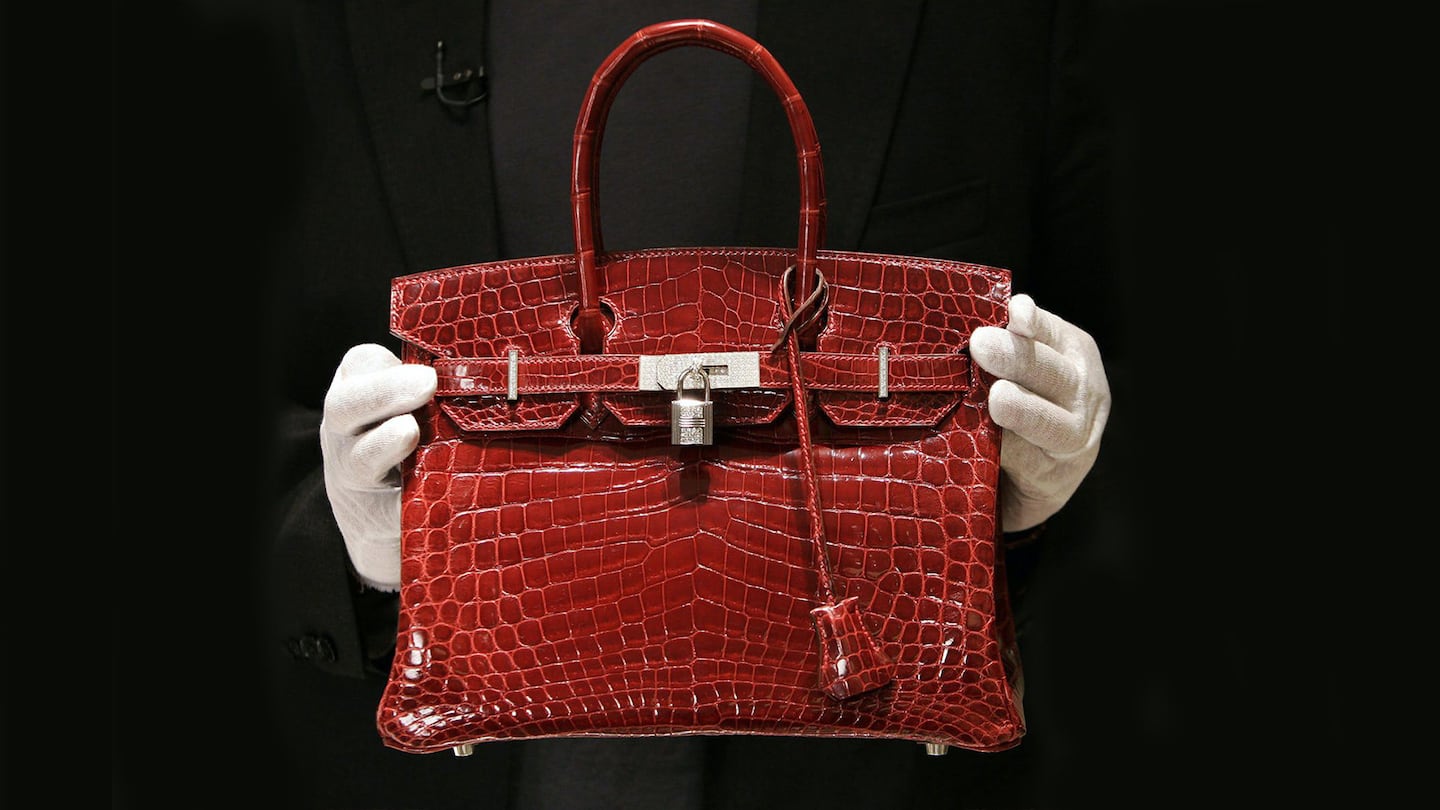
SHANGHAI — The Chinese word peihuo translates loosely as “accompanying products” or “matching purchase” — but to English-speakers it sounds a lot like “paywall,” and the practice to which it refers is thought to work like one, too. Luxury consumers in China say they increasingly feel pressure to load up on shoes, sweaters and bracelets before being offered the chance to buy a sought-after handbag or watch.
For some products, the practice is nothing new: social media, style blogs and handbag chatrooms have long swirled with accounts from buyers of Hermès’ “B,K,C” trinity (the Birkin, Kelly and Constance bags, for which demand has long exceeded supply), saying they managed to nab one of the highly desirable styles only after spending many thousands of yuan on other items.
What is new, according to many consumers in China, is the increased spending now required, as well as signs that more brands seem to be getting into the peihuo game. Companies including Rolex, Chanel and Celine are among those said to have instituted a similar system for their most in-demand products.
A well-publicised incident outside an Hermès store in Beijing last July underscored the extent to which the rumoured practice had become luxury retail’s worst-kept secret: a lone protestor was photographed with a pile of orange Hermès shopping bags at his feet, holding a sign that read, “Rubbish Hermès. Peihuo but no bag.”
ADVERTISEMENT
Hermès, which did not respond to requests for comment, has never acknowledged any such strategy, and has simply maintained that sales associates (known colloquially as SAs in China) and store managers have broad discretion to manage demand (and disappointment) surrounding sought-after bags. But consumers, analysts and fashion writers defend the existence of a peihuo system.
Brands including Rolex, Chanel and Celine are among those said to have instituted a <i>peihuo</i> system for some products.
“In foreign countries, Hermès’ distribution is basically a one-to-one ratio” — meaning to nab a $10,000 dollar Birkin bag, a shopper would have to buy $10,000 of other items, claimed Ashley Lin, a Shanghai-based writer who has written about peihuo extensively for readers of fashion titles like Xiaozi Chic and Hers. “In our country, this ratio is more exaggerated. Sometimes it’s required to reach a consumption quota of one-to-one and a half or even one-to-two.”
At Swiss watchmaker Rolex, scores of Chinese clients have claimed they were asked to show receipts for items from sister brand Tudor in order to make a purchase. “The distribution of Rolex is so straightforward and rude,” Weibo user Yangyangema posted. “The SA directly told me three Tudors.”
At LVMH-owned Celine, Weibo user @kuailebanushi said she was “disgusted” by the “package” of other purchases a store assistant suggested she purchase in order to secure a popular style. “I really have to say no to this ethos,” she wrote.
Customers also say they have experienced peihuo demands at French luxury giant Chanel.
Rolex and Celine declined to comment. Chanel issued a statement refuting the claims: “Chanel denies having implemented this practice, which goes against the client experience that the brand strives to offer,” it said.
Still, shoppers insist the peihuo paywall is real.
Navigating a shifting system
ADVERTISEMENT
While Hermès’ outraged protestor garnered some sympathy online, many consumers see peihuo practices as simply part of the luxury shopping game.
Angela Ji, an Hermès customer who has purchased products from the brand both in Shanghai and internationally, told BoF that she’s never heard her SA use the term peihuo, but believes the practice is implied in their interactions.
“I didn’t ask about the bag I wanted right away, but after a while, when I did mention it, the SA began to send messages [on WeChat] about other things I might want to buy. None of them are leather goods, sometimes it’s jewellery or clothes,” she said. Ji believes buying them could give her the chance to one day buy a Birkin bag in one of the most desirable colours.
“I don’t think there is a fixed ratio for peihuo, and a lot can come down to the discretion of the SA, so I will buy what she suggests to keep on her good side,” Ji said.
Local social media platforms, from Xiaohongshu to Douyin and Bilibili, are rife with videos and articles with suggestions on how to navigate the system, with many echoing Ji’s understanding.
“The idea of peihuo is to ensure first that a customer is the right fit for a brand,” one video on Xiaohongshu says, adding that sales associates and store managers can be fired for not controlling the distribution of their most coveted products.
The prevailing wisdom is that the best items to buy for peihuo purposes include furniture and homewares or ready-to-wear — ”insider” categories that prove a customer is willing to immerse themselves in the world of the brand, and not the products favoured by more budget-conscious consumers, who buy logo-driven merch or items with high resale values, such as leather goods.
Jonathan Yan, a principal at consultancy Roland Berger in Shanghai, says most consumers are pragmatic about peihuo.
ADVERTISEMENT
“Instead of thinking they have paid 200,000 [yuan] for a 100,000 [yuan] bag, some people think of it in another way,” he said. “I paid 200,000 for the bag I want, and the other stuff is just like a bonus.”
To this point, the alleged peihuo practices certainly haven‘t hurt Hermès sales, which rose 27 percent at constant exchange rates to €2.77 billion ($3.02 billion) in the first three months of the year, the brand said in an earnings release last Thursday. In Asia excluding Japan, a region dominated by the company’s Chinese business, sales jumped 20 percent excluding currency shifts.
While the resurgence of lockdowns and other coronavirus restrictions in China is sure to dent the luxury industry as a whole, Hermès is among the few brands to have consistently seen strong growth over the pandemic period.
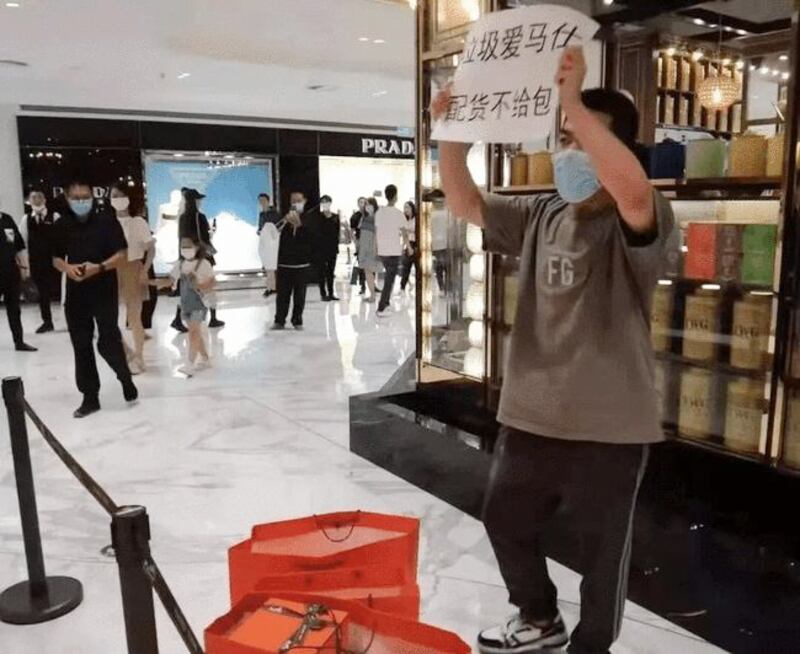
Supply chain shortages, logistical hurdles and surging global demand since the pandemic have led to lower stocks of best-selling products in China, which could be fuelling the more frequent allegations of peihuo practices. That trend would be unlikely to reverse as long as China’s government continues its pursuit of a zero-Covid strategy that has eliminated the opportunities for Chinese consumers to travel and shop abroad.
Carefully managing the brand risk
While peihuo can boost a brand’s sales figures, juice underperforming categories, and reinforce an aura of exclusivity, the practice is far from being without risk.
Part of the problem with admitting to peihuo is that it’s a legal grey area in China, which has some of the strictest consumer protection laws in the world, according to Zhu Yiyi, a lawyer at Shanghai’s Guohuo law firm. Shanghai’s Consumer Protection Agency has told local media outlets it is actively tracking consumer complaints about the practice.
Peihuo exists in a legal grey area, and Shanghai’s Consumer Protection Agency has said it is actively tracking consumer complaints about the practice.
Peihuo concentrates power in the hands of sales associates, who need to be carefully trained to ensure both discretion and a kind of fairness. Managing customer expectations is difficult, as the practice isn’t explicitly discussed.
“Though it creates this virtuous cycle of exclusivity, it could backfire with consumers if it goes too far,” Yan says — for example, if a brand without the appropriate status were to try it, or if Chinese consumers feel like they are being taken advantage of by having to reach higher peihuo quotas than consumers from other countries. It could also push some consumers to buy on the second-hand luxury market which has been booming in China.
Still, the practice could continue to grow, particularly as pandemic restrictions drag on, keeping sales associates under pressure and leaving Chinese luxury customers with fewer alternatives.
“I don’t think Hermès or Rolex, or any of these companies are going to change this practice any time soon,” said Ben Cavender, managing director at China Market Research Group. “On some level, it allows them to support their position at the pinnacle or apex of the luxury brand spectrum.”
时尚与美容
FASHION & BEAUTY
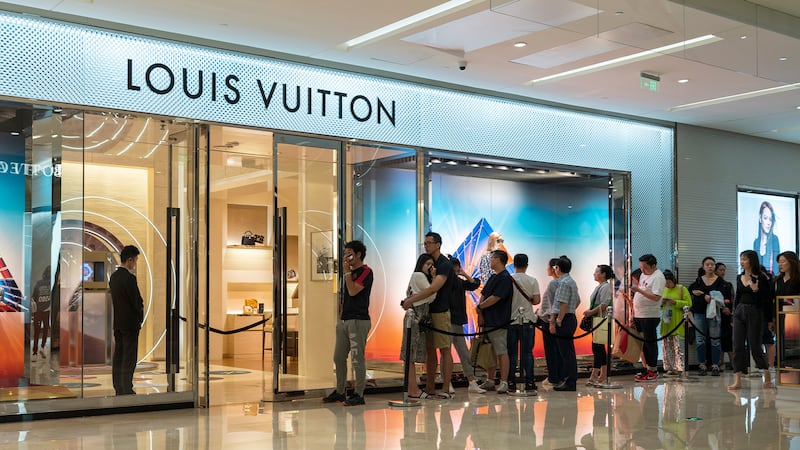
LVMH Expects Fast Recovery From Lockdowns in China
Sales in the key fashion and leather goods unit rose 30 percent, the world’s largest luxury group said, beating analyst expectations for 20 percent growth. In China, despite a deterioration in business as major luxury centres including Shanghai remain under strict lockdowns to limit the spread of Covid-19, the group remains optimistic that sales will rebound quickly. “We’ve seen [in previous lockdowns] once this is over demand comes back to stores as prior to lockdowns. There’s no reason this shouldn’t be the case this time,” chief financial officer Jean-Jacques Guiony said. “We are reasonably hopeful that this should be a moment in the history of luxury in China and not more than that.” (BoF)
Uniqlo Operator Reports Record Half-Year Profit Despite China Slowdown
Fast Retailing reported a record half-year profit, with operating profit climbing 18 percent to 189 billion yen ($1.51 billion) in the six months through February from a year earlier. The retailer said it expects revenue declines and a large drop in profits in its Greater China segment in the second half and for the whole of fiscal 2022, a poor signal for global brands generally as Fast Retailing is seen as a bellwether for how major global retailers are being impacted by Covid-related shutdowns in China. (Reuters)
科技与创新
TECH & INNOVATION
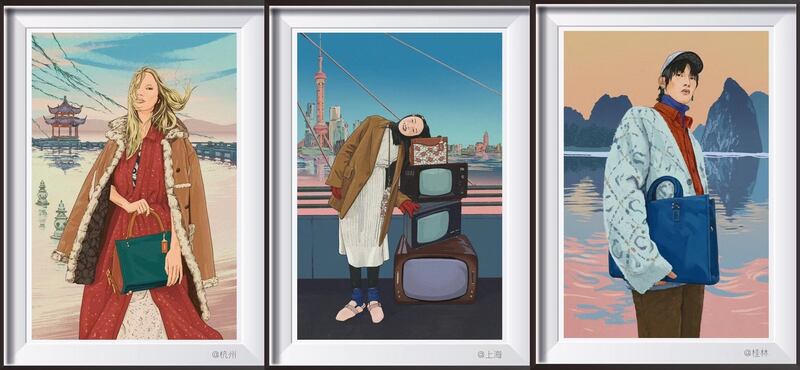
China Sends Warning on NFTs
Three industry bodies jointly issued guidelines to prevent the digital asset market from overheating. Generally called digital collectibles in China, NFTs have been gaining traction in the country and have been embraced by tech giants Alibaba and Tencent. Although NFTs could contribute to China’s digital economy, they could also lead to speculative trading, money laundering, and illegal financing, said authorities. NFTs must not be used in the issuance of financial assets such as securities, insurance, loans or precious metals, said the statement, published on the website of the China Banking Association. The associations also barred members from providing trading venues, or financing, for NFTs. (Reuters)
Shanghai Fashion Week Partners With Xiaohongshu for Digital Edition
Shanghai Fashion Week, which postponed its physical event that was due to begin at the end of March indefinitely, has inked an official collaboration with Xiaohongshu for a digital fashion event that is running until April 28. The event will see nine designers presenting digital fashion collections on Xiaohongshu, 3,000 of the limited edition digital fashion items will be available for sale via Xiaohongshu’s platform. Xiaohongshu said digital fashion has become a trend on its platform recently, with both real and virtual influencers showcasing the latest digital clothing and accessories, but this event will bring the trend to a broader audience. (Press Release)
消费与零售
CONSUMER & RETAIL
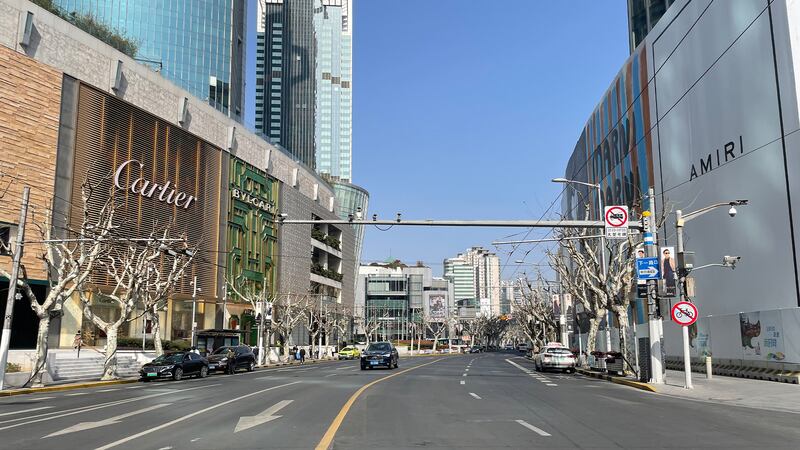
China’s March Retail Sales Fall
Chinese data for March showed retail sales contracting the most on an annual basis since April 2020, falling 3.5 percent year-on-year, worse than expectations for a 1.6 percent decrease and coming off an increase of 6.7 percent for the months of January and February combined (data for January and February are often bundled together in China because the period coincides with the Lunar New Year holidays). (BoF)
政治,经济与社会
POLITICS, ECONOMY, SOCIETY
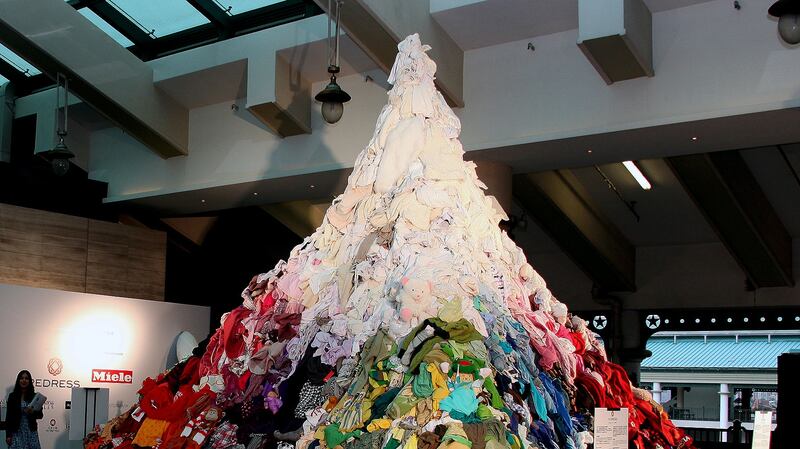
China Aims to Recycle 25% of Textile Waste By 2025
As well as recycling a quarter of the 22 million tonnes of textile waste accrued each year, the country is looking to produce two million tonnes of recycled fibre annually within the next three years, according to an announcement from China’s National Development and Reform Commission (NDRC), Ministry of Industry and Information Technology and Ministry of Commerce. The textile initiatives are part of a broader push for China to reach peak carbon emissions within the decade and carbon neutrality by 2060. (BoF)
John Lee Emerges as Sole Candidate in Hong Kong Chief Executive Election
A one-horse race had been widely expected after chief executive Carrie Lam announced earlier this month that she wouldn’t seek a second term, citing a need to spend more time with her family. Lee, 64, a former chief secretary for administration and police official, received 786 valid nominations from the roughly 1,500-member Election Committee that picks the city’s leader, the government said Monday. Support from more than half of the panel makes the election planned for May 8 a fait accompli. Lee has vowed to protect the city’s status as a global financial centre and maintain its competitiveness. (Bloomberg)
China Decoded wants to hear from you. Send tips, suggestions, complaints and compliments to our Shanghai-based Asia Correspondent casey.hall@businessoffashion.com.
With consumers tightening their belts in China, the battle between global fast fashion brands and local high street giants has intensified.
Investors are bracing for a steep slowdown in luxury sales when luxury companies report their first quarter results, reflecting lacklustre Chinese demand.
The French beauty giant’s two latest deals are part of a wider M&A push by global players to capture a larger slice of the China market, targeting buzzy high-end brands that offer products with distinctive Chinese elements.
Post-Covid spend by US tourists in Europe has surged past 2019 levels. Chinese travellers, by contrast, have largely favoured domestic and regional destinations like Hong Kong, Singapore and Japan.